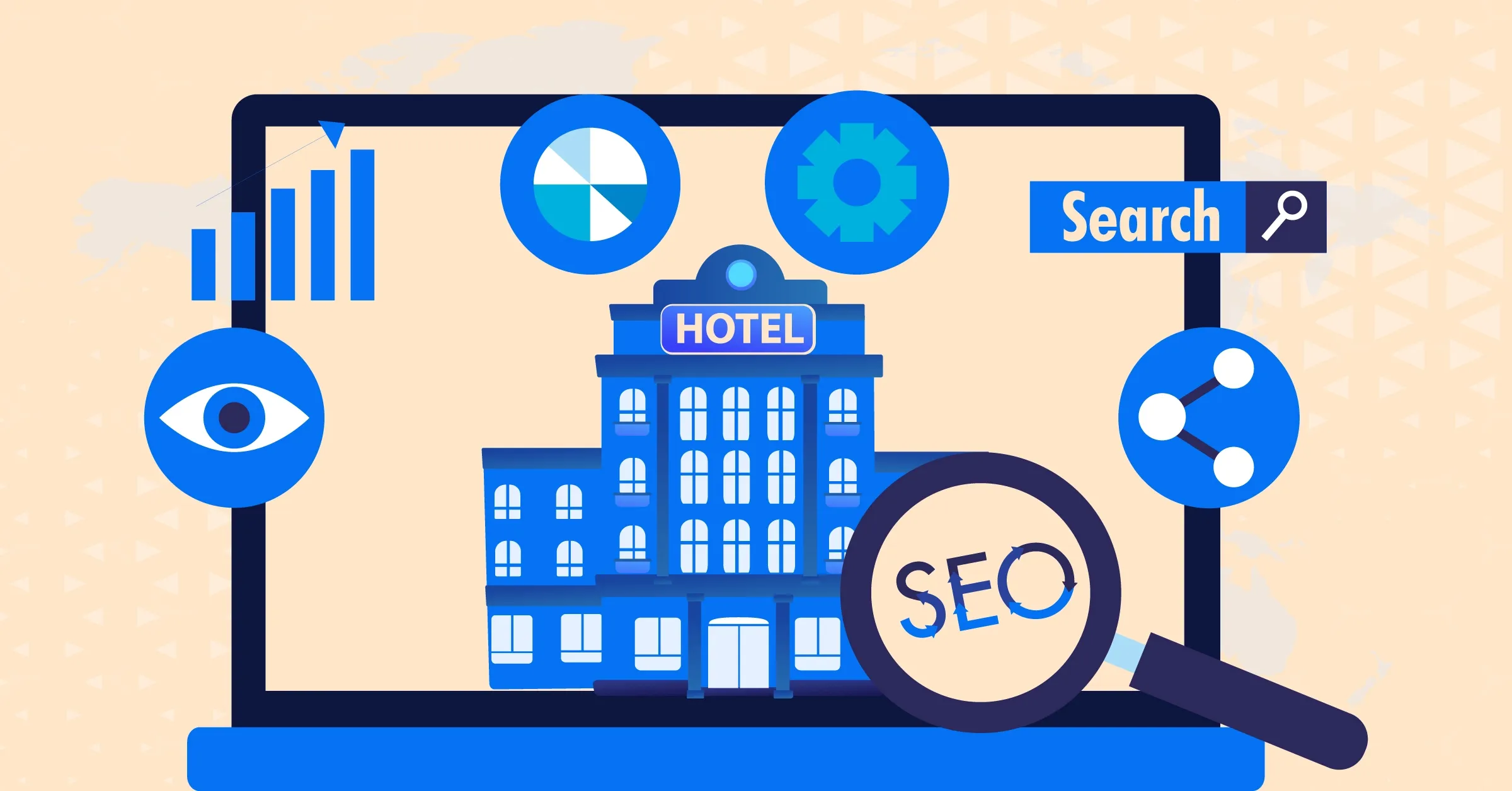How a Hotel SEO Providers Redefines Bookings in the Digital Travel Era
In the last decade, the travel industry has undergone a transformation unlike any other. The way travelers search, compare, and book hotels is no longer limited to brochures, travel agents, or even simple search queries. Today, the booking journey is a digital-first experience influenced by voice search, AI-powered recommendations, hyper-personalized content, and shifting traveler expectations. For hotels, the challenge is not only to be visible online but also to dominate digital spaces where intent-driven travelers are making decisions.
That’s where specialized hotel SEO company enter the picture. Far beyond traditional keyword targeting and link building, these providers design strategies built around traveler psychology, search behavior, and digital experience. In a world where global online travel sales are expected to surpass $1.2 trillion by 2030, a strong SEO strategy is no longer a nice-to-have—it is a survival tactic.
This article takes a deep dive into how a modern hotel SEO provider redefines bookings in the digital travel era.
The New Traveler Mindset
Travel planning has become an entirely different process than it was even five years ago. Instead of flipping through physical guides, today’s travelers are glued to their smartphones. From browsing Instagram reels of exotic locations to reading reviews on Google and checking prices on metasearch engines, their decisions are shaped by digital touchpoints.
A few key shifts in traveler behavior are worth noting:
- Micro-moments dominate – Travelers research in bursts. They might look at “best boutique hotels near the beach” in the morning and search for “last-minute deals” at night.
- Visual inspiration drives bookings – Platforms like TikTok, YouTube, and Instagram influence hotel choices more than traditional ads.
- Trust in reviews and local signals – A glowing Google review or a high local map ranking often holds more weight than glossy photos.
- Direct booking incentives matter – Guests want loyalty points, perks, or discounted rates when skipping OTAs (Online Travel Agencies).
- Voice and AI search are rising – “Hey Siri, find me a hotel in Goa with free breakfast” is becoming the norm.
Understanding this mindset is crucial. A hotel SEO provider doesn’t just optimize websites; they tailor strategies that align with how real travelers plan and book.
Moving Beyond Traditional SEO
Many hotels still think SEO equals stuffing keywords like “best hotel in New York” into their content. That outdated approach is no longer effective. Search engines now prioritize intent, user experience, and authority signals.
A hotel SEO provider in 2025 uses a multi-layered approach that includes:
- Experience-focused optimization – Ensuring fast site speed, seamless mobile booking, and intuitive navigation.
- Content storytelling – Creating destination guides, blogs, and interactive visuals that resonate with traveler aspirations.
- Schema markup – Implementing structured data so that Google showcases room availability, ratings, and prices directly in search results.
- Voice-search readiness – Optimizing for conversational queries instead of short keywords.
- Local SEO mastery – Enhancing Google Business Profiles and local map rankings to capture “near me” searches.
This evolution in SEO ensures hotels aren’t just appearing in search results but are influencing the booking decision itself.
How Hotel SEO Redefines Bookings
Here’s how specialized SEO providers turn digital visibility into direct reservations:
1. Driving More Direct Bookings
Hotels lose a massive percentage of revenue to OTAs, sometimes as much as 15–25% per booking in commission fees. SEO helps shift the balance by funneling traffic directly to hotel websites instead of third-party platforms. With optimized landing pages, competitive pricing, and exclusive offers highlighted in SERPs, travelers are more inclined to book directly.
2. Enhancing Brand Authority
When a hotel consistently ranks for travel-related keywords, publishes authentic content, and earns backlinks from trusted sources, it establishes authority. Travelers trust what they see repeatedly. Strong rankings create a perception of reliability and brand credibility.
3. Capturing Intent at Every Stage
SEO providers map content to each phase of the traveler journey:
- Dreaming – Destination blogs and inspirational guides.
- Planning – Comparison content like “best family-friendly hotels in Sydney.”
- Booking – Fast, optimized booking engine pages with strong CTAs.
- Experiencing – Local attraction guides and event highlights.
- Sharing – Encouraging reviews and social shares to build ongoing visibility.
4. Winning in Local Search
Over 70% of hotel-related searches include a location or “near me” phrase. A hotel SEO provider ensures hotels appear at the top of local packs and map results, which often leads to instant phone calls or direct bookings.
5. Leveraging AI and Predictive Insights
Modern SEO providers use AI to predict seasonal demand, analyze competitor performance, and identify untapped keyword opportunities. This data-driven precision redefines how hotels attract bookings during both peak and off-peak seasons.
The Role of Content in Hotel SEO
Content is no longer just blog posts—it’s the backbone of every booking funnel. For hotels, effective SEO content includes:
- Destination landing pages with immersive storytelling.
- Video tours optimized for YouTube and TikTok search.
- Interactive maps highlighting nearby attractions.
- FAQs tailored for voice search queries.
- User-generated content like guest stories and reviews.
Instead of being purely transactional, content now builds an emotional bridge between the traveler and the destination, subtly encouraging bookings.
Important Points
- SEO providers design strategies aligned with modern traveler behavior, not outdated keyword stuffing.
- Direct bookings save hotels money by reducing dependence on OTAs.
- Local SEO, schema markup, and voice search optimization are critical in the digital era.
- Content marketing serves as a trust-building mechanism that boosts engagement and reservations.
- AI-driven insights allow hotels to stay ahead of competition and anticipate traveler demand.
Future Trends in Hotel SEO
Looking ahead, the digital travel landscape will continue to evolve. Hotels that want to stay competitive must adapt to:
- AI-powered personalization – Search engines delivering hyper-customized hotel recommendations based on past preferences.
- Augmented reality tours – Virtual hotel walkthroughs ranking in SERPs.
- Zero-click bookings – Google enabling direct hotel bookings from search results.
- Sustainability signals – Eco-friendly certifications and green initiatives becoming ranking factors.
- Cross-device continuity – Guests beginning their search on a tablet and completing the booking on mobile seamlessly.
A forward-thinking hotel SEO provider anticipates these shifts and ensures hotels are not just keeping up but staying ahead.
Conclusion
In the digital travel era, where the customer journey is fragmented and influenced by countless touchpoints, SEO plays a transformative role. A hotel SEO provider is no longer just an optimizer of keywords but a strategist who reshapes how bookings happen. By blending technical precision, storytelling, local dominance, and predictive analytics, they empower hotels to reduce dependency on OTAs, grow direct bookings, and strengthen long-term brand visibility.
For hoteliers, the message is clear: in a world where travelers make decisions in micro-moments, your digital presence is your most powerful sales channel. And with the right SEO partner, that presence can turn casual browsers into loyal guests—redefining bookings for the future of travel.








